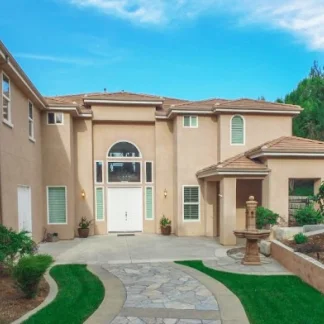Avery Centre
Avery Centre is a behavioral healthcare center that provides mental health treat...
Discovery Mood and Anxiety Program, located in Chino Hills, California, offers behavioral health care, mental health treatment, and eating disorder treatment. If addiction is the primary diagnosis, clients may need to be referred to an alcohol or drug rehab center.
Discovery Mood and Anxiety Program offers a person-centered and clinical approach to transformation. Their services include residential treatment, a partial hospitalization program (PHP), and an intensive outpatient program (IOP).
The residential program provides individual therapy, group therapy, nutritional support, skills-building classes, and around-the-clock supervision. Discharge planning is also provided.
The partial hospitalization program meets Monday through Friday for eight hours per day. Group therapy, process groups, individual therapy, and nutritional support are provided.
The intensive outpatient program meets several days per week for three hours at a time. Individual therapy, group therapy, family therapy, and nutritional support are available.
Discovery Mood and Anxiety Program accepts most insurance plans, including Amerigroup, Magellan, United Healthcare, Blue Cross Blue Shield, ComPsych, and HCSC. Out of network benefits may vary, so it’s important to verify coverage with your provider.
Contact us for more information: (855) 221-6494

Connect with Discovery Mood & Anxiety Program by calling their admissions team directly.
(855) 221-6494 Website Get DirectionsThe Joint Commission, formerly known as JCAHO, is a nonprofit organization that accredits rehab organizations and programs. Founded in 1951, the Joint Commision's mission is to improve the quality of patient care and demonstrating the quality of patient care.
Joint Commission Accreditation: Yes
Experiential therapy is a form of therapy in which clients are encouraged to surface and work through subconscious issues by engaging in real-time experiences. Experiential therapy departs from traditional talk therapy by involving the body, and having clients engage in activities, movements, and physical and emotional expression. This can involve role-play or using props (which can include other people). Experiential therapy can help people process trauma, memories, and emotion quickly, deeply, and in a lasting fashion, leading to substantial and impactful healing.
In individual therapy, a patient meets one-on-one with a trained psychologist or counselor. Therapy is a pivotal part of effective substance abuse treatment, as it often covers root causes of addiction, including challenges faced by the patient in their social, family, and work/school life.
Life skills trainings involve all the skills a person must have in order to function successfully in the world. These include time management, career guidance, money management, and effective communication. Truly successful addiction recovery is based on the ability to not only live substance-free, but to thrive. Life skills teaches the practical necessities of functioning in society, which sets clients up for success in life, and therefore sobriety.
In individual therapy, a patient meets one-on-one with a trained psychologist or counselor. Therapy is a pivotal part of effective substance abuse treatment, as it often covers root causes of addiction, including challenges faced by the patient in their social, family, and work/school life.
Life skills trainings involve all the skills a person must have in order to function successfully in the world. These include time management, career guidance, money management, and effective communication. Truly successful addiction recovery is based on the ability to not only live substance-free, but to thrive. Life skills teaches the practical necessities of functioning in society, which sets clients up for success in life, and therefore sobriety.
Life skills trainings involve all the skills a person must have in order to function successfully in the world. These include time management, career guidance, money management, and effective communication. Truly successful addiction recovery is based on the ability to not only live substance-free, but to thrive. Life skills teaches the practical necessities of functioning in society, which sets clients up for success in life, and therefore sobriety.
Avery Centre is a behavioral healthcare center that provides mental health treat...
Canyon Ridge Hospital offers alcohol and drug rehab services to men and women se...
Let’s Talk Ministries - Chino Hills, located in Chino Hills, California, offers ...